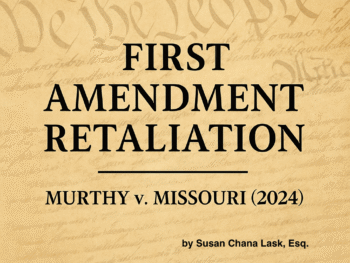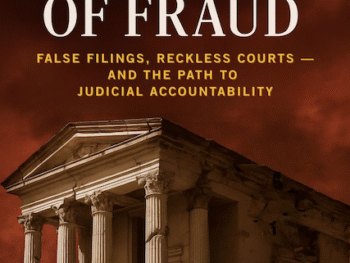UNPUBLISHED OPINION. CHECK COURT RULES BEFORE CITING
Superior Court of New Jersey, Appellate Division.
Sharon A.F. MIKEN, Plaintiff-Respondent/Cross-Appellant,
v.
Jane F. HIND, Defendant-Appellant/Cross-Respondent.
Argued May 19, 2009.Decided June 18, 2009.
West KeySummary Divorce 134 252.3(3)
134 Divorce
134V Alimony, Allowances, and Disposition of Property
134k248 Disposition of Property
134k252.3 Particular Property or Interests and Mode of Allocation
134k252.3(3) k. Separate Property and Property Acquired Before Marriage. Most Cited Cases
The partner was not entitled to equitable distribution of partnership assets. The only assets to which she asserted claim were her interest in real property and the inheritance her partner received from her father. The partner did not dispute the adequacy of the award of the real property. The Divorce Act excluded inherited assets from equitable distribution. N.J.S.A. 2A:34-23(h).
On appeal from Superior Court of New Jersey, Chancery Division, Family Part, Gloucester County, Docket No. FM-08-947-07.
Susan Chana Lask argued the cause for appellant/cross-respondent (Stephanie Canas Hunnell, attorney; Ms. Hunnell, on the brief).
Robert J. Adinolfi argued the cause for respondent/cross-appellant (Adinolfi and Spevak, attorneys; Mr. Adinolfi and Sarah N. Martine, on the brief).
Before Judges SKILLMAN, GRAVES and GRALL. PER CURIAM.
*1 The parties have filed cross-appeals from a corrected final judgment entered on April 24, 2008, which terminated their partnership entered into under the Domestic Partnership Act, N.J.S .A. 26:8A-1 to -13, awarded plaintiff $71,309 with respect to the parties’ division of assets, and denied the parties’ applications for counsel fees.
The parties entered into their domestic partnership in October 2004. Defendant moved from South Carolina into plaintiff’s home in Palmyra at that time.
During the relationship, the parties purchased property in Villas, New Jersey, on the Delaware Bay, for $135,000. Defendant paid a $3,000 deposit on this property. Plaintiff paid a down payment of $24,000, contributed $16,000 towards capital improvements, and paid $3,000 towards a home equity loan, for total contributions of $43,000. Despite plaintiff’s substantial contributions, the property was titled in defendant’s name only. The parties used this property as a residence during the summer months and for weekend visits in the winter. Sometime before trial, the property was appraised at $230,000.
In September 2004, the parties moved from Palmyra into an age-restricted community in Sewell, New Jersey. Plaintiff purchased the property using funds from the sale of the Palmyra property and an inheritance and took title solely in her own name. Defendant did not contribute to the purchase or any capital improvements, but did contribute to the mortgage payments.
In February 2006, defendant’s father died and left her securities worth about $135,000. Defendant originally placed these funds in a joint account with plaintiff, but later removed plaintiff’s name from the account with plaintiff’s consent.
In November 2006, the parties separated. Defendant moved into the Villas property, and plaintiff stayed in the Sewell property. It appeared by January 2007 that the separation would be permanent, and the parties began discussing the termination of their partnership, including the division of their assets. Those discussions were followed by an exchange of e-mails, which defendant claims culminated in an agreement that defendant would pay plaintiff $43,000 for her interest in the Villas property. Plaintiff denies that any final settlement agreement was reached.
In June 2007, plaintiff brought this action for termination of the domestic partnership. She pled “extreme cruelty” as the ground for termination. Plaintiff sought termination, equitable distribution of all property acquired during the domestic partnership, and counsel fees. Shortly thereafter, defendant filed an answer and counterclaim in which she denied the alleged cruelty and alleged “irreconcilable differences” as the ground for termination. Defendant’s counterclaim also asserted that the parties had a settlement agreement regarding the division of assets. In her answer to defendant’s counterclaim, plaintiff asserted that “irreconcilable differences is not a cause of action recognized under the … Domestic Partnership Act … and is therefore unavailable as a basis for terminating the parties’ domestic partnership.”
*2 The case was tried before the Family Part in January 2008. At the conclusion of plaintiff’s case, defendant’s counsel noted that plaintiff had not presented any testimony regarding her cause of action for termination based on “extreme cruelty.” The trial court suggested that the complaint be amended to assert a cause of action for termination based on irreconcilable differences. After first expressing reservations as to whether irreconcilable differences was a ground for termination, plaintiff’s counsel acquiesced in the trial court’s suggestion.
The trial court concluded in an oral opinion that the parties’ domestic partnership should be terminated based on irreconcilable differences. The court rejected defendant’s claim that the parties had entered into a binding agreement under which defendant would pay plaintiff $43,000 for her interest in the Villas property and concluded that plaintiff was entitled to receive $71,309 from defendant for that interest. However, the court rejected plaintiff’s claim to a share of the inheritance that defendant received from her father. Finally, the court rejected both parties’ applications for awards of counsel fees.On her appeal, defendant argues that irreconcilable differences is not a ground for divorce under the Domestic Partnership Act and therefore the trial court did not have jurisdiction to terminate the parties’ partnership on that ground. She also argues that the trial court erred in finding that the parties had not entered into a binding settlement under which plaintiff agreed to accept $43,000 for her interest in the Villas property. On her cross-appeal, plaintiff argues that the trial court erred in denying her claim to a share of defendant’s inheritance and her application for counsel fees. We reject the arguments presented on both the appeal and cross-appeal and affirm the corrected final judgment entered on April 24, 2008.
I.
Defendant argues that the judgment must be vacated because irreconcilable differences is not one of the grounds for termination of a domestic partnership set forth in N.J.S.A. 26:8A-10(a)(2). In response, plaintiff argues that even though the Domestic Partnership Act does not authorize the termination of a domestic partnership based on irreconcilable differences, the termination of their partnership on this ground was proper because the Divorce Act now authorizes a divorce on this ground, N.J.S.A. 2A:34-2(i), and Lewis v. Harris, 188 N.J. 415, 908 A.2d 196 (2006) requires same-sex couples to be afforded the same rights and benefits enjoyed by heterosexual couples. Plaintiff also argues that defendant is judicially estopped from arguing that irreconcilable differences is not a ground for termination because her counterclaim asserted a claim for termination based on irreconcilable differences and she acquiesced at trial in the termination of the partnership on this ground.
At oral argument on the appeal, we noted that even though irreconcilable differences is not a ground for termination under the Domestic Partnership Act, eighteen months’ separation is a ground for termination, N.J.S.A. 26:8A-10(a)(2)(d), and even though the parties had not been separated for eighteen months at the time of trial, it is undisputed that they now have been separated for this period of time and that there is no reasonable prospect of reconciliation. We also noted that even if the court agreed with defendant’s argument that the termination of the domestic partnership must be vacated because irreconcilable differences is not a ground for termination, it would remand to the trial court to proceed with the termination on the ground of eighteen months’ separation. In addition, we noted that the trial court’s findings of fact and conclusions of law would not be vitiated on such a remand. Cf. Mitchell v. Oksienik, 380 N.J.Super. 119, 130-32, 880 A.2d 1194 (App.Div.2005). The court inquired whether it would make sense, to avoid delay and additional legal fees, for this court to exercise its original jurisdiction, see R. 2:10-5, and affirm the termination on the ground of eighteen months’ separation. The parties agreed to this procedure. Accordingly, we affirm the termination of the parties’ domestic partnership on the ground of eighteen months’ separation without considering their arguments regarding irreconcilable differences and judicial estoppel.
II.
*3 Between January and March of 2007, the parties exchanged e-mails regarding the division of their assets. Defendant claims that this exchange resulted in a binding settlement under which plaintiff agreed to accept $43,000 for her interest in the Villas property. The trial court concluded that defendant failed to establish the existence of such a settlement agreement.
The e-mails that defendant claims resulted in a binding settlement agreement apparently were not introduced into evidence at trial and are not included in defendant’s appendix on appeal. Therefore, the only record before us regarding those e-mails is the parties’ testimony about them.
A settlement agreement, like any other contract, “arises from offer and acceptance, and must be sufficiently definite that the performance to be rendered by each party can be ascertained with reasonable certainty.” Weichert Co. Realtors v. Ryan, 128 N.J . 427, 435, 608 A.2d 280 (1992) (quoting W. Caldwell v. Caldwell, 26 N.J. 9, 24-25, 138 A.2d 402 (1958)). Therefore, “[w]here the parties do not agree to one or more essential terms … courts generally hold that the agreement is unenforceable.”Ibid. Moreover, in determining whether negotiations between parties to a family action have reached the point of a binding settlement agreement, a court should keep in mind that the financial issues in such an action “are, by their nature, interrelated.” Lehr v. Afflitto, 382 N.J.Super. 376, 396, 889 A.2d 462 (App.Div.2006).
It is clear from the excerpts of the parties’ exchange of e-mails quoted in their trial testimony that the primary issue in the settlement negotiations was the amount of money plaintiff would be entitled to receive for her interest in the Villas property. However, that was not the only issue. The division of the furniture in both the Villas and Sewell residences was also discussed. In addition, plaintiff sought defendant’s agreement to assume responsibility for payment of all costs associated with the termination. Plaintiff’s March 26, 2007 e-mail, upon which defendant primarily relies in arguing that the parties reached a binding settlement agreement, stated:
I agree to the financial settlement, $43,000, but I do not want to be responsible for any filing, lawyer’s fees, (yours), or other costs associated with the dissolution. Now, let’s decide about the furniture. You have my list. As far as I’m concerned, the porch furniture was a joint purchase so it remains under negotiation.
Even if the part of defendant’s e-mail quoted in her trial testimony could be read to indicate that she agreed to the division of furniture proposed by plaintiff, it does not refer to plaintiff’s demand that she assume responsibility for payment of all costs associated with the termination of their partnership. Although defendant testified at trial that she was willing to assume those costs, such testimony nearly a year after the parties’ settlement negotiations cannot be relied upon to show that a final settlement agreement was reached in March 2007.
*4 We recognize that parties may arrive at a settlement agreement regarding only one item in dispute, in this case the value of plaintiff’s interest in the Villas property. However, the excerpts of the parties’ e-mails quoted in their trial testimony do not indicate that they arrived at such an agreement. Rather, plaintiff appears to have been exploring the possible terms of a comprehensive settlement agreement, which the parties never reached.
III.On her cross-appeal, plaintiff argues that she is entitled to what she describes as “equitable distribution” of domestic partnership assets. However, the only assets with respect to which she asserts this claim are her interest in the Villas property and the inheritance defendant received from her father. The trial court awarded plaintiff $71,309 for her interest in the Villas property. Plaintiff does not dispute the adequacy of this award. Consequently, plaintiff’s argument is directed solely at the trial court’s denial of her claim to a share of defendant’s inheritance.
In denying this claim, the trial court stated:
[T]he testimony was that [defendant] inherited a sum of money from her father who passed away in February of ’06. Sometime in May, she opened a joint account….
Notwithstanding the fact that it was a joint account, the money remained untouched. It was never contributed, in any fashion, to the marital [res], and I hesitate to use that term, to the [res] of the relationship.
There appeared to be no attempt by [plaintiff] to tap those funds in any fashion. While she may have anticipated, at some point, through the untimely passing of [defendant], to have been the beneficiary of those funds, clearly it was not used and it’s readily identifiable as the proceeds of the inheritance.
So on that basis, I’m satisfied that [defendant’s] inheritance is immune from division as well.
We affirm the denial of plaintiff’s claim to a share of defendant’s inheritance from her father substantially for the reasons expressed by the trial court. In addition, we note that the Divorce Act excludes inherited assets from equitable distribution. N.J.S.A. 2A:34-23(h). Inherited funds may be subject to equitable distribution in some circumstances if there has been a commingling of those funds with non-exempt funds. See Ryan v. Ryan, 283 N.J.Super. 21, 25, 660 A.2d 1269 (Ch.Div.1993). However, the trial court correctly concluded that defendant’s temporary deposit of her inheritance in a joint account for estate planning purposes would not constitute such a commingling. See Dotsko v. Dotsko, 244 N.J.Super. 668, 676-77, 583 A.2d 395 (App.Div.1990).IV.
On her cross-appeal, plaintiff also argues that the trial court erred in denying her application for counsel fees. Plaintiff suggests that the court held that it lacked authority to award counsel fees. Plaintiff misreads the trial court’s opinion. The court seemed to recognize that Rule 5:3-5(c), which authorizes an award of counsel fees in an action asserting “claims relating to family type matters … between unmarried persons,” would allow a counsel fee award in this type of action. However, the court concluded that an award of counsel fees was not appropriate under the circumstances of this case.
*5 The trial court did not abuse its discretion in reaching this conclusion. The parties’ economic circumstances were similar during the period of their domestic partnership. They were both public school teachers with comparable incomes. The value of their assets also appears to have been comparable, although the evidence presented regarding this subject was limited. Moreover, the trial court correctly concluded that there was no basis for a finding of bad faith on the part of either litigant. Under these circumstances, it was well within the court’s discretion to deny any award of counsel fees.Affirmed.
N.J.Super.A.D.,2009.Miken v. Hind Not Reported in A.2d, 2009 WL 1686728 (N.J.Super.A.D.)









